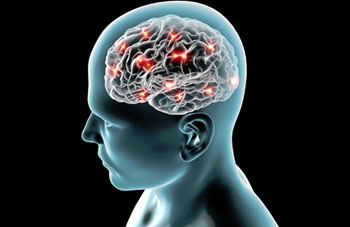Research Indicates Brain Imaging May Predict Response to Psychotherapy
By Andrew Deutsch
Posted on 23 Nov 2016
A review of current research on the topic indicates that brain scans may in the future be used to help clinicians predict the response to psychotherapy, of patients with various anxiety and depression-related disorders.Posted on 23 Nov 2016
The review was published in the November/December 2016 issue of the journal Harvard Review of Psychiatry. For example, specific "neuroimaging markers" could be used to help predict whether a patient with Major Depressive Disorder (MDD) and similar diagnoses will respond well to psychotherapy, or whether they need psychotherapy, or even medications.

Image: Brain imaging could be used to help predict a patients’ response to psychotherapy (Photo courtesy of Naeblys/fotolia).
The researchers found 40 studies that included patients with various diagnoses such as MDD, Obsessive-Compulsive Disorder (OCD), and Post-Traumatic Stress Disorder. Some of the researchers used structural brain imaging, while others used functional scans that can visualize brain activity.
The studies found that psychotherapy response could be linked to activity in the amygdala and the anterior insula. Higher activity in the amygdala of patients with MDD indicated an increased likelihood of response to psychotherapy. Patients with anxiety disorders and less activity in the amygdala were also likely to have improved psychotherapy outcomes.
Lead author of the study, Dr. Trisha Chakrabarty, University of British Columbia (UBC; Vancouver, BC, Canada), said, "While some brain areas have emerged as potential candidate markers, there are still many barriers that preclude their clinical use. Future studies of psychotherapy response may focus further on these individual regions as predictive markers. Additionally, future biomarker studies may focus on pretreatment functional connectivity between these regions, as affective experience is modulated via reciprocal connections between brain areas such as the ACC and amygdala."
Related Links:
University of British Columbia














